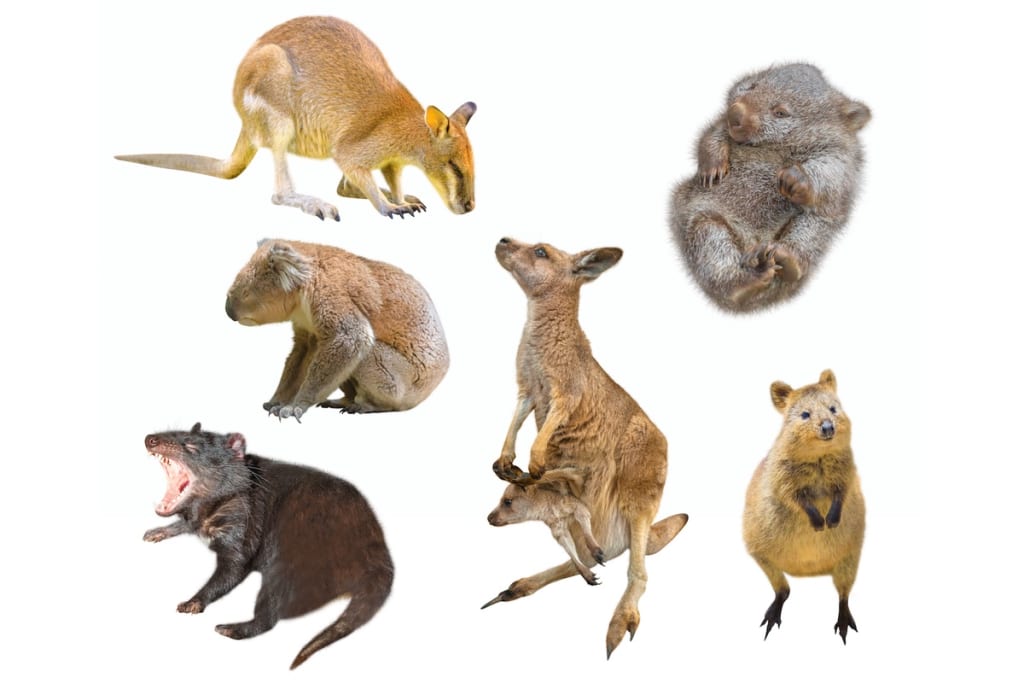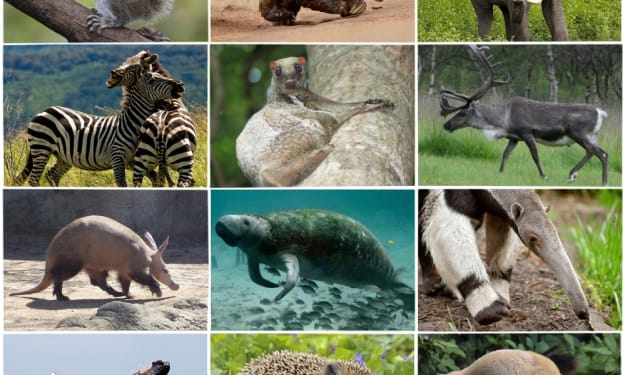Marsupials: The Diverse and Fascinating Group of Pouched Mammals and Their Conservation Challenges
An Exploration of the Biology, Behavior, Evolution, and Conservation of Marsupials, Including Kangaroos, Wallabies, Koalas, and Possums

Marsupials are a group of mammals that are characterized by their unique reproductive and developmental strategies. Unlike placental mammals, which give birth to fully formed young, marsupials give birth to underdeveloped young that continue to develop outside of the womb in a pouch called a marsupium. Marsupials are found primarily in Australia, New Guinea, and nearby islands, although some species have also been introduced to other parts of the world. In this article, we will explore the fascinating world of marsupials, their biology, behavior, and conservation.
Overview:
Marsupials are a diverse group of mammals that include approximately 330 extant species. They are found primarily in Australia and nearby islands, although some species have also been introduced to other parts of the world, such as South America. The most well-known marsupials include kangaroos, wallabies, koalas, and possums, although there are many other lesser-known species as well.
Reproduction:
One of the most unique features of marsupials is their reproductive system. Unlike placental mammals, which give birth to fully formed young, marsupials give birth to underdeveloped young that continue to develop outside of the womb in a pouch called a marsupium. The young are born after a relatively short gestation period, typically between 12 and 40 days, and then crawl into the pouch where they attach to a nipple and continue to develop for several months. During this time, the young are completely dependent on the mother for food and protection.
Behavior:
Marsupials are a diverse group of animals that exhibit a wide range of behaviors. Kangaroos and wallabies, for example, are known for their hopping locomotion and are able to cover great distances in search of food and water. Koalas, on the other hand, are arboreal and spend most of their time in trees, where they feed on eucalyptus leaves. Possums are nocturnal and spend much of their time foraging for food on the ground. They are very kind
Evolution:
Marsupials are believed to have evolved in the late Jurassic or early Cretaceous periods, approximately 125-160 million years ago. They are believed to have diverged from the lineage that eventually gave rise to placental mammals, which includes humans, dogs, cats, and most other mammals. Marsupials are thought to have evolved in South America and then spread to other parts of the world, including Australia and nearby islands.
Conservation:
Many species of marsupials are threatened or endangered due to habitat loss, hunting, and other human activities. The koala, for example, is facing significant threats due to habitat loss and fragmentation, disease, and climate change. Similarly, many species of wallabies and kangaroos are hunted for their meat and hides, and their habitats are being destroyed by human activities.
Conservation efforts are underway to protect these unique and important animals. In Australia, for example, the koala is listed as a vulnerable species under state and federal legislation, and efforts are being made to conserve its habitat and reduce the impact of human activities on its populations. Similarly, conservation efforts are underway to protect other species of marsupials, including wallabies, kangaroos, and possums.
Conclusion:
Marsupials are a unique and fascinating group of mammals that are characterized by their unique reproductive and developmental strategies. They give birth to underdeveloped young that continue to develop outside of the womb in a pouch called a marsupium, and they exhibit a wide range of behaviors and adaptations. Many species of marsupials are threatened or endangered due to habitat loss, hunting, and other human activities, and conservation efforts are necessary to protect these important animals and their habitats.
About the Creator
Enjoyed the story? Support the Creator.
Subscribe for free to receive all their stories in your feed. You could also pledge your support or give them a one-off tip, letting them know you appreciate their work.





Comments
There are no comments for this story
Be the first to respond and start the conversation.